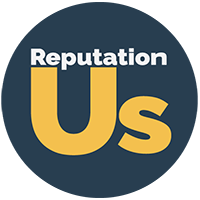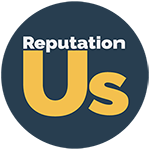If the pandemic taught us anything, it’s good hygiene. We all know how to properly wash our hands, avoid touching our face, and steer clear of coughing humans. As cyber-attacks and online scams increased along with COVID-19, proper “Internet hygiene” also became a top concern.
Now, as the world moves toward Web3 with employees still working remotely and perhaps living a Metaverse life, we predict the focus on good “reputation hygiene” will become widely recognized as essential.
The recent Edelman Trust Barometer highlighted the importance of maintaining a consistent, authentic and responsive relationship with customers online. If 65 percent of Internet users see online searches as the most trusted source of information about people and companies, then neglecting your online reputation by haphazardly engaging with your stakeholders is poor reputation hygiene, indeed. It’s important to clean up your organization’s reputation now, before moving into Web3.
What is Web3?
Web3 will combine the open infrastructure of Web1 (static websites of 1998-2005) with the public participation of Web2 (interactive, social web with user-generated content). It is described as the “new web,” characterized by decentralization and blockchain technology. This includes cryptocurrencies, NFTs, DAOs, decentralized finance, and more. It offers a read/write/own version of the web, where users have a financial stake in, and more control over the web communities they belong to.
As more companies enter Web3, the structure—expected to replace centralized, corporate platforms—will most likely be the future of doing business online by the end of the decade. According to Citi, the total addressable market for the Metaverse could be between $8 trillion and $13 trillion by 2030, with total users numbering around five billion.
Bringing Your Reputation Forward
Part of Web3 is a focus on “decentralized identity”—the notion that, in the future, your reputation will travel with you. Participants on Web3 will have a “reputation score.” For your company, this may include a blockchain-based tally of employees you’ve hired, projects you’ve been involved with and events you’ve sponsored. This information will become part of your business’ permanent digital record.
In a blockchain-based system, all transactions are recorded and stored in a public ledger. This makes them easily accessible and transparent; ensuring that data cannot be tampered with, because they are verified by multiple nodes. Users will be in control of their own data, as transactions can take place without the need for third-party involvement.
Polishing Your Reputation
Below are four essential reputation hygiene considerations you should focus on now to ensure a clean presence for your company as digital interactions move toward Web3.
- Solidify good habits today, on Web2. Monitor social media to know what your customers, staff and stakeholders are saying about you. Correct errors and address misinformation. ReputationUs can conduct a reputational audit for your company to ensure your reputation aligns with your vision for your company.
- Hire a Chief Reputation Officer (CRO). Last month the World Economic Forum declared that every company needs a Chief Trust Officer, stating that as Web3 gains momentum, brands with an online presence will be rooted in their community’s trust and perception of them. Excellent advice, WEF; we’ve been encouraging companies to hire a CRO for years. Ensuring this member of your C-Suite is familiar with the Metaverse is essential.
- Recognize How Integral Reputation is to Web3. Your digital reputation is an accumulation of all your online data, including your content, digital assets and actions online. A primary aspect of Web3 is that a “reputation system” will collect, aggregate and distribute data about users and their online activities.
- Control Your Reputation. In a Web2 world, your digital reputation is fragmented and based on the content you create on a platform, and how your stakeholders engage with it. Views, likes, shares, and comments all serve as reputation signals for readers. Currently, you must monitor your reputation on multiple sites, address your followers, your content, your engagement, and your credibility. So the good reputation you’ve built on Facebook, for example, can’t be moved to your Twitter account.
Maintaining Good Reputation Hygiene
Web3 brings the opportunity for reputation based on participation, allowing you to build your reputation through participating in communities online—and to own/control your consolidated reputation data.
While you may be busy with day-to-day operations and opportunities to scale your business, it is important to maintain a focus on your company’s good reputation hygiene as the digital world continues to change. This will ensure a squeaky clean reputation now, and in the ever-evolving future.








